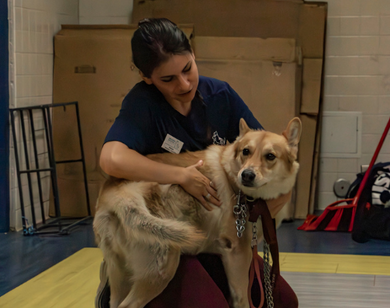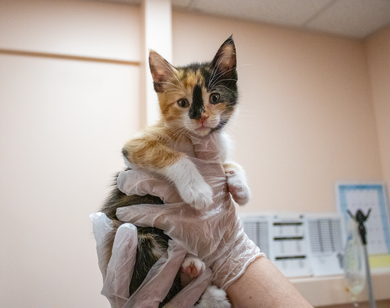As you bring your new pet home, you may want to bring them everywhere with you or have your friends bring over their furry friends to play with, but there are few things to keep in mind in order to keep your pet safe and healthy.
As you may know, vaccines are an important way to ensure your pet is protected against harmful diseases, like Feline Panleukopenia Virus (FPV) and Parvo.
However, there may be a timeframe when your pet is too young or immune-compromised to be fully vaccinated. Or there may be infections, like Valley Fever, that can’t be prevented by a vaccine.
There are some tips that can help prevent your pet from catching these diseases along with ways to spot them early to help give your pet the best chance at a full recovery.
Canine Parvovirus and Feline Panleukopenia Virus
Parvo and FPV are both highly contagious and deadly viruses that present very similarly in dogs and cats. Fortunately, both viruses are preventable with a round of vaccines. However, young puppies and kittens may not be fully vaccinated, which can put them at a higher risk.
Until your pet has received all their vaccines, you should be mindful of their surroundings and avoid interactions with other animals outside of your home. This includes:
- Avoiding dog parks or heavily populated parks.
- No play dates with animals outside of your own vaccinated pets.
- Washing your hands and removing your clothes after visiting other pets to avoid unknowingly spreading diseases.
If you think your pet was exposed, there a few symptoms to check for, such as vomiting, diarrhea, and lethargy. If you suspect these symptoms, quarantine your pet from other animals in the house and bring them to your vet for diagnosis.
Parvo/FPV can remain viable in a space for months to years after exposure, and alcohol sanitizers do not kill the virus. Make sure to use gloves or wash hands well with soap and water when interacting with an exposed pet to avoid spreading the disease.
There is not a known treatment for either virus, but effected animals are treated with antibiotics and fluid therapy, among other treatments. These viruses can be deadly, and early detection is key to a good outcome.
And remember, the best way to protect your furry friends from these viruses is to ensure that they receive all their vaccinations on schedule.
Valley Fever
Although Valley Fever is not contagious among animals, it’s still important to be aware of your pet’s surroundings as the fungus is very prevalent in Arizona’s desert landscape, especially during the more wet months, like during Monsoon season.
Rain makes the fungus grow within the soil, and the tiny spores become airborne when disturbed by winds, construction, or digging. If the spores are inhaled, there is a chance that they can infect the lungs.
Unfortunately, there is no true way to prevent this disease, and there is yet to be a vaccine available to the public. However, there are a few precautions you can take to hopefully decrease your pet’s chances, which include:
- Avoiding long durations outside or walks with your pet during windy weather or in a dust storm.
- Keeping windows closed during windy weather to avoid spores entering your home.
- Preventing your pet from digging and playing in dirt, especially if it has rained recently.
Only around 40% of animals and people who are infected become sick, but younger or senior pets tend to be more at risk since their immune systems may not be as strong. Valley Fever can take two main forms of disease in dogs and cats.
The primary disease means it most likely was caught early and is limited to the lungs. Signs include a harsh dry cough, a fever, a lack of appetite, and lethargy or depression. Some may misdiagnose this in dogs as kennel cough. These signs usually occur around 3 weeks after infection, but sometimes the disease can lay dormant in the body for years before signs occur. Usually, in these cases, the fungus has spread to different parts of the body, which can impact their bones and joints. Symptoms usually include lameness and swelling of the joints.
Valley Fever can be detected by a blood test, but a positive test doesn’t always mean an animal needs to be treated. If there is a high level of antibodies then treatment will most likely be needed. Fungal infections can take a long time to cure, but the prognosis is good if the infection remains in the lungs.
The best way to protect your pets is to make sure they receive regular vet visits and receive all their vaccinations. Remember Arizona Animal Welfare League offers a low-cost vet clinic and monthly vaccination clinics to help your keep your pets safe and healthy!







